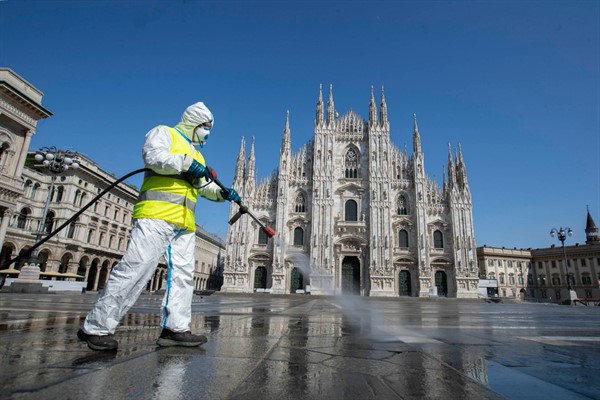
The novel coronavirus caught many world leaders unprepared, despite consistent warnings that a global pandemic was inevitable. And it revealed the flaws in a global health architecture headed by the World Health Organization, which had already been faulted for its response to the 2014 Ebola pandemic in West Africa. Will there be an overhaul of the WHO in the aftermath of the pandemic?
After the novel coronavirus first emerged in late 2019 in Wuhan, China, its combination of transmissibility and lethality brought the world to a virtual standstill. Governments restricted movement, closed borders and froze economic activity in a desperate attempt to curb the spread of the virus. At best, they partially succeeded at slowing down the first wave, without stopping the subsequent multiple waves that experts had warned about. According to official records so far, more than 629 million people worldwide have been infected, and more than 6.5 million have died from COVID-19, the disease caused by the coronavirus. The actual toll of the virus is far worse and will continue to climb, even as deaths have begun to slow considerably.
With each successive wave, governments had to balance the need to resume economic activity with measures to limit the virus’s spread, while also ramping up distribution of vaccines that, though developed rapidly, were allocated unevenly, especially in the Global South. How they attempted to resolve these tensions in many cases had major political implications. Ultimately the emergence of variants that are more contagious but, when combined with vaccinations, less lethal have led many countries to consider COVID-19 to be endemic, with some leaders—including U.S. President Joe Biden—even declaring the pandemic over. Others, particularly China, continue to implement draconian policies to contain and eradicate the coronavirus.
Though it caught many world leaders unprepared, global health authorities and experts had consistently warned that a global pandemic was inevitable. That it nevertheless spread so easily revealed the flaws in a global health architecture headed by the World Health Organization, which had already been faulted for its response to the 2014 Ebola pandemic in West Africa. But the WHO has also been intentionally hobbled by member states in how aggressively it can react to public health crises out of concerns over sovereignty.
In the case of COVID-19, the agency became a political punching bag for former U.S. President Donald Trump as he looked to deflect criticism of his own response to the pandemic. Trump repeatedly echoed accusations that the WHO initially downplayed the severity of the virus in deference to Beijing. But given the WHO’s dependence on cooperation from member states, it is unclear what the agency could realistically have done differently. The WHO was also subsequently faulted for not pressing Beijing harder for more access during its investigation into the origins of the pandemic.
The pandemic has also underscored the global health infrastructure’s inequalities, as poorer nations were outbid for critical medical equipment by developed countries in the early days of the pandemic’s spread. They continue to face similar obstacles when it comes to gaining access to vaccines. And to the extent that it has diverted attention and potentially funding from responses to other public health concerns, including food security and other infectious diseases, the death toll could be compounded.
No comments:
Post a Comment